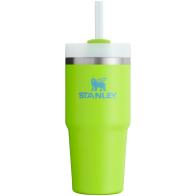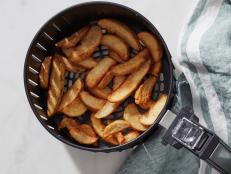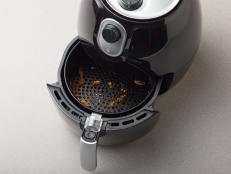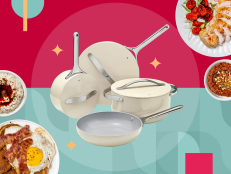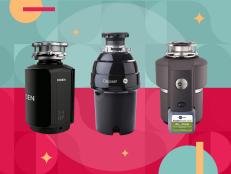Do You Need an Air Purifier In Your Kitchen?
With all the buzz around gas stoves, you might be wondering if an air purifier is the appliance your kitchen is missing.


onurdongel/Getty
With the recent wave of concerns regarding indoor air quality, the conversation about air purification has been more prominent than ever. Recently, this discourse took a surprising twist: entering the realm of the ordinary kitchen and focusing on gas stoves. In light of this, it’s no small wonder that the demand for air purifiers has significantly escalated. Many people already have air purifiers in their homes for scrubbing the air of dust, pet dander, and unpleasant odors, but we wondered, do you need an air purifier specifically for your kitchen? Join us as we break down the world of air purifiers, understand their function, who should consider one, and, more importantly, why your kitchen might need one — or not.
Air Purifiers: What They Do and How They Work
Air purifiers are devices designed to eliminate harmful particles and gasses from the air. These particles could range from dust and dander to bacteria and viruses, effectively reducing the risk of respiratory issues and allergic reactions. Our source at the U.S. Environmental Protection Agency (EPA) explained, “There are two types of filtration systems to improve indoor air quality. Particle filtration removes particles such as dust, mold spores, pollen, smoke, and other particulate matter from the air. Gaseous filtration removes gases such as volatile organic compounds, pesticides, aldehydes, odors, and other gases from the air.”
The core technology in most air purifiers is some type of filter, either a HEPA (High-Efficiency Particulate Air) filter or one made with activated charcoal. HEPA filters can capture 99.97% of particles larger than 0.3 microns, including mold spores, dust mites, and pollen. Other purifiers use an activated carbon filter for volatile organic compounds (VOCs) and unpleasant odors. Some newer models use UV-C light to kill bacteria and viruses, while others use ionizers to attract and trap particles.
Who Should Buy an Air Purifier?
People with allergies or asthma can significantly benefit from air purifiers as these devices minimize allergens in the environment. They are also valuable for pet owners or households where smoke is a concern. People living in areas with high air pollution or those concerned about the spread of airborne diseases may also consider investing in an air purifier.
Do You Need an Air Purifier In Your Kitchen?
Recently, gas stoves have come under scrutiny for their role in indoor air pollution. They emit pollutants such as nitrogen dioxide, carbon monoxide, and even particulate matter, all of which could have potential health implications. For this reason, kitchens have become a new frontier for air purification.
When we spoke to Gene Ehrbar, the VP of Product Management at Molekule, he said, “In addition to releasing CO2 when in use, gas stoves can leak small amounts of natural gas, which is a much more potent greenhouse gas than CO2 and can aggregate into fine particles. Indoors, they can raise nitrogen dioxide levels high enough for children who live in homes with them to have a comparable risk of asthma as children who live with cigarette smokers.”
However, the necessity of an air purifier in your kitchen can depend on several factors. For instance, proper ventilation can often be a more effective solution. If your stove hood efficiently vents to the outdoors, and you use it every time you cook, this could be enough to keep the air quality in your kitchen safe.
If an outdoor-venting stove hood isn’t an option, an air purifier can indeed be beneficial.
While an air purifier can help to reduce fine particles and some gaseous pollutants produced during cooking, it’s important to note that “no air cleaner will effectively remove all indoor pollutants, including pollutants found in kitchen environments,” according to the EPA. Therefore, a combination of source control, ventilation, and air cleaning is recommended for the best indoor air quality.
Choosing the Right Air Purifier
While the EPA does not technically certify or recommend specific air cleaning devices and manufacturers, they do have a handy consumer guide and a more detailed technical guide that can help point you in the right direction. For filtering particles, the group recommends choosing a portable air cleaner with a “clean air delivery rate” (or CADR) large enough for the size of the room. “The higher the CADR, the more particles the air cleaner can filter and the larger the area it can serve,” says the EPA. When it comes to gases, look for an air cleaner with an activated carbon filter or some other type of filter designed to remove gases.
Bottom line, a portable air purifier with a sufficiently high CADR and an activated carbon filter will be able to remove both particles and gases. Higher fan speeds, longer run times, and noise level are also essential factors to consider and can help you choose the right device.
Shop Air Purifiers Online
Related Links:












